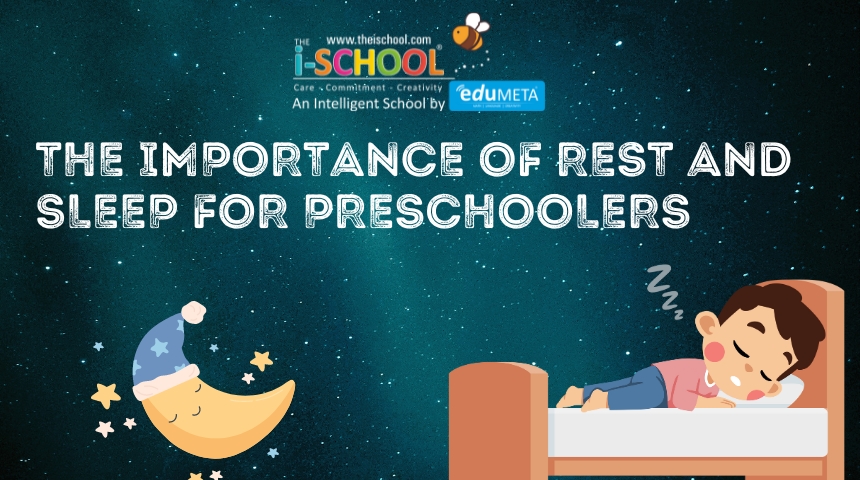The Importance of Rest and Sleep for Preschoolers

Ensuring that preschoolers get adequate rest and sleep is crucial for their overall development and well-being. During these formative years, children experience rapid growth and brain development, making quality sleep essential. In this blog, we will explore the importance of rest and sleep for preschoolers and provide tips for establishing healthy sleep routines.
Why Rest and Sleep Are Crucial for Preschoolers
Physical Growth and Development
-
- During sleep, the body releases growth hormones essential for physical development.
- Adequate rest supports muscle repair, tissue growth, and overall physical health.
- Brain Development
- Sleep is vital for brain development, including cognitive functions such as memory, attention, and problem-solving.
- During sleep, the brain processes and consolidates new information learned throughout the day.
- Emotional Well-Being
- Adequate sleep helps regulate emotions and manage stress.
- Children who get enough sleep are better equipped to handle daily challenges and exhibit fewer behavioral problems.
- Immune System Support
- Quality sleep strengthens the immune system, helping preschoolers fight off illnesses and infections.
- A well-rested child is less likely to fall sick and can maintain regular attendance in preschool.
- Improved Attention and Learning
- Rested children are more alert, focused, and ready to engage in learning activities.
- Lack of sleep can lead to difficulties in concentrating, which can impact academic performance.
How Much Sleep Do Preschoolers Need?
Preschoolers, typically aged 3 to 5 years, require about 10 to 13 hours of sleep per day, including naps. This amount can vary depending on individual needs, but ensuring they get sufficient rest is crucial for their overall development.
Establishing Healthy Sleep Routines
- Consistent Sleep Schedule
- Establish a regular sleep schedule by setting consistent bedtimes and wake-up times, even on weekends.
- Consistency helps regulate the child’s internal clock, making it easier for them to fall asleep and wake up naturally.
- Relaxing Bedtime Routine
- Create a calming bedtime routine that includes activities such as reading a book, taking a warm bath, or listening to soothing music.
- A predictable routine signals to the child that it is time to wind down and prepares them for sleep.
- Create a Sleep-Friendly Environment
- Ensure the child’s bedroom is conducive to sleep by keeping it cool, dark, and quiet.
- Use comfortable bedding and consider using blackout curtains or a white noise machine if necessary.
- Limit Screen Time Before Bed
- Avoid screen time at least one hour before bedtime, as the blue light from screens can interfere with the production of the sleep hormone melatonin.
- Encourage calming activities instead, such as reading or drawing.
- Encourage Physical Activity
- Engage preschoolers in regular physical activity during the day to help them expend energy and promote better sleep.
- Ensure activities are balanced with periods of rest to avoid overstimulation.
- Monitor Diet and Hydration
- Avoid giving children large meals or sugary snacks close to bedtime.
- Ensure they stay hydrated throughout the day but limit fluid intake before bedtime to prevent nighttime awakenings.
- Address Sleep Issues
- If your child experiences sleep disturbances such as nightmares, night terrors, or difficulty falling asleep, address these issues promptly.
- Consult with a pediatrician if sleep problems persist, as they can provide guidance and support.
Conclusion
Quality rest and sleep are fundamental for the healthy development of preschoolers. By establishing consistent sleep routines and creating a sleep-friendly environment, parents can ensure their children get the rest they need to thrive. Prioritizing sleep not only supports physical growth and brain development but also enhances emotional well-being and overall health. Make sleep a priority for your preschooler and watch them flourish in all aspects of their development.
- Importance of rest for preschoolers
- Preschool sleep routine
- Child development and sleep
- Sleep tips for young children
- Benefits of sleep for kids
